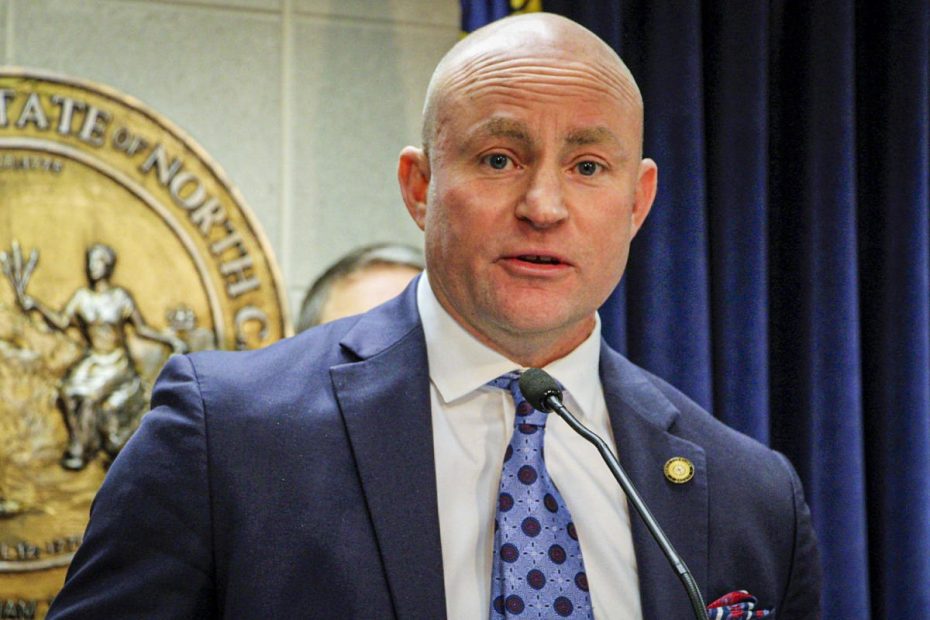A North Carolina lawmaker is going viral on TikTok after his office allegedly told a female voter to “move to China” in an email after she raised concerns about the state's abortion policy.
The voter, who asked to remain anonymous because of concerns about her safety, told NBC News on Saturday that she sent an email to Republican Senator Danny Britt on November 7 saying her family was “desperate to expand.”
“But thanks to you, [President-elect Donald] We can't stand Trump and the Republican Party and the strict abortion laws in this country,” she wrote in the email, a copy of which was shared with NBC News. “Thanks for ruining our future! You are all terrible people.”
In response, Britt's legislative assistant Camille McDougald reportedly told the voter to consider moving to another country.
“Thank you very much for the email. I'm not entirely sure how we're stopping you from expanding your family. I suggest you move to China immediately and see how that works out for you,” the email reads. “If for some reason that doesn't work, Russia is nice in the winter and Venezuela in the summer.”
McDougald's response gained attention after it was shared by TikTok user Lindsay Talley, who posted a video last week explaining that her friend has a genetic condition that “causes life-threatening abnormalities with heart problems in the fetus.” The video has been viewed more than 260,000 times, with many commenters labeling the response as 'unprofessional' and 'disgusting'.
“This is incredibly inappropriate,” one person wrote.
“These politicians have lost their ever-loving spirit,” another commented.
The voter told NBC News she is a carrier of a very rare genetic condition with a 50% chance of being passed on to a child.
“I was scared when I wrote that email, about my livelihood,” she said.
The woman said McDougald's response made it seem like “they didn't care.”
Multiple attempts to reach Britt and McDougald were unsuccessful.
Under North Carolina law, abortions are legal under the following circumstances: during the first twelve weeks of pregnancy; when a qualified physician determines that a medical emergency exists; up to and including the twentieth week of pregnancy, if the pregnancy is the result of rape or incest; and during the first 24 weeks of pregnancy if a doctor determines that there is a life-threatening abnormality in the fetus. If a life-threatening anomaly is discovered, the patient must complete a consent form before requesting an abortion.
The woman argued that the law was not clear enough and that it therefore “forces people to seek care outside the state.”
Ultimately, the woman said she wants her government representatives to “have some compassion and tell me what they are going to do.”
This article was originally published on NBCNews.com

